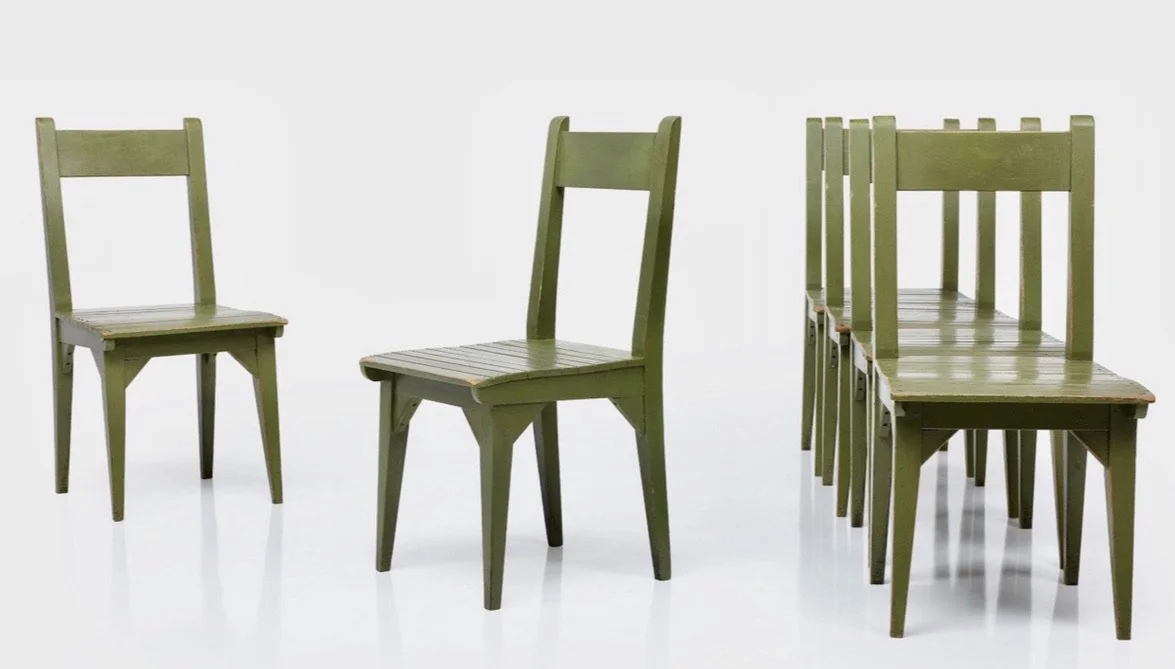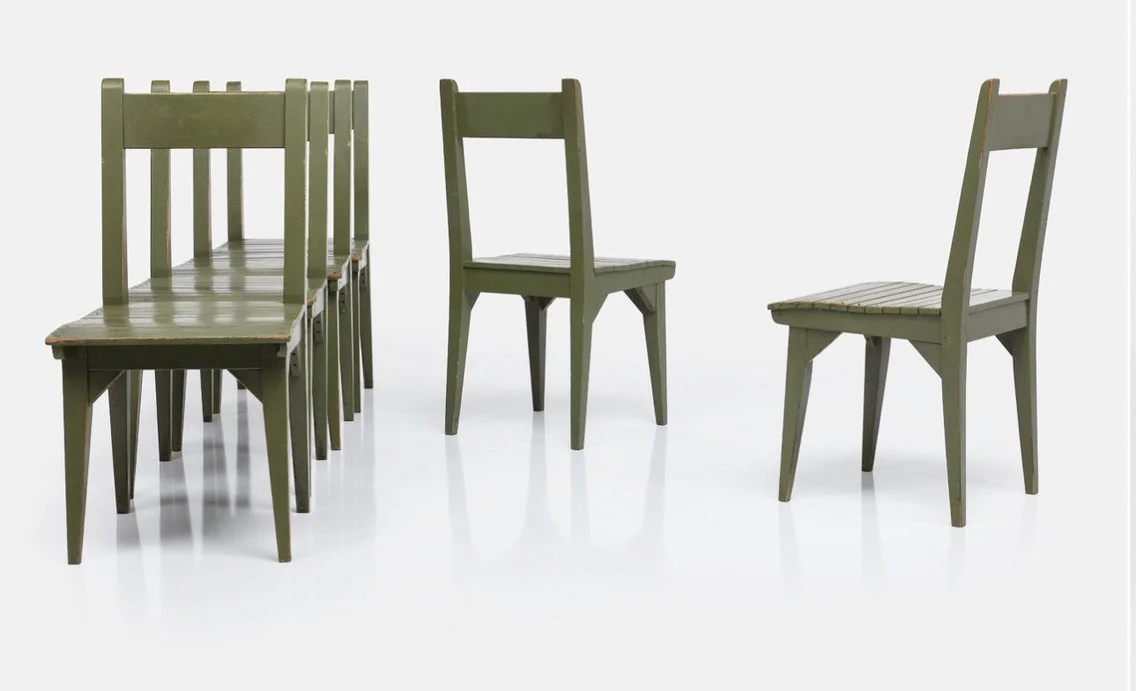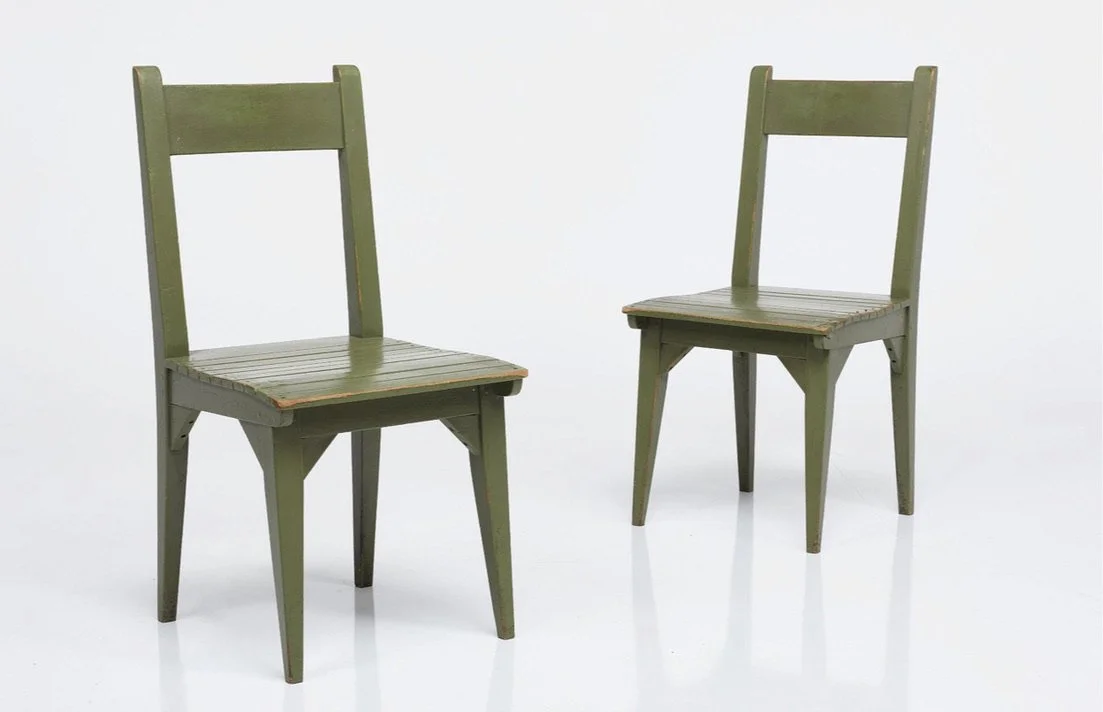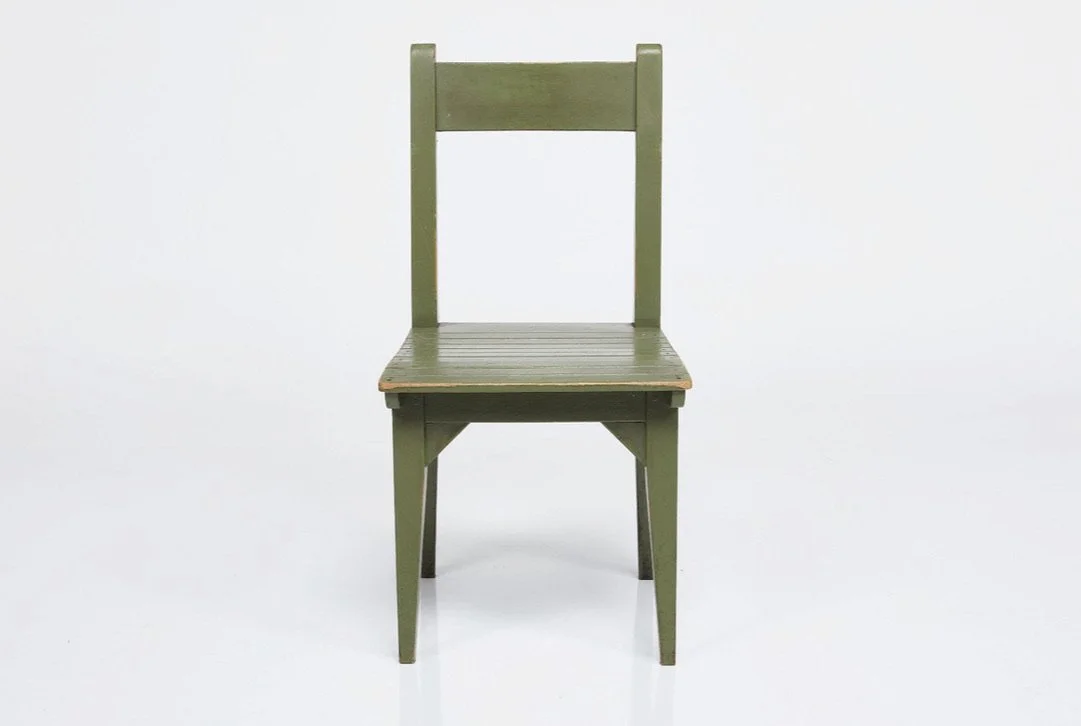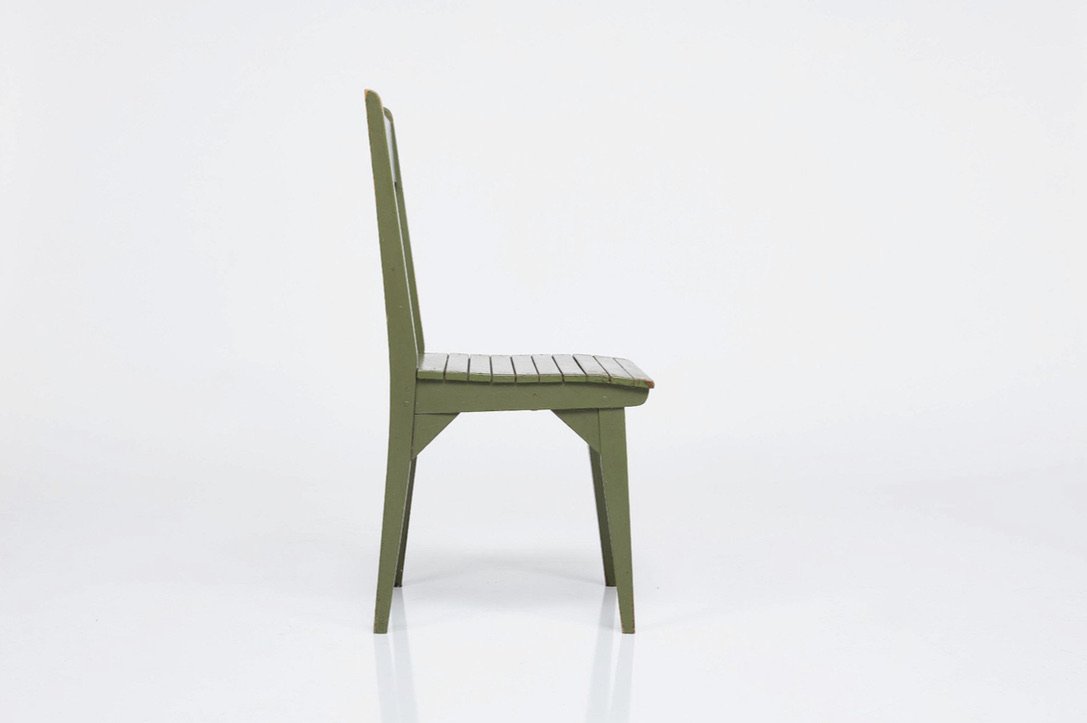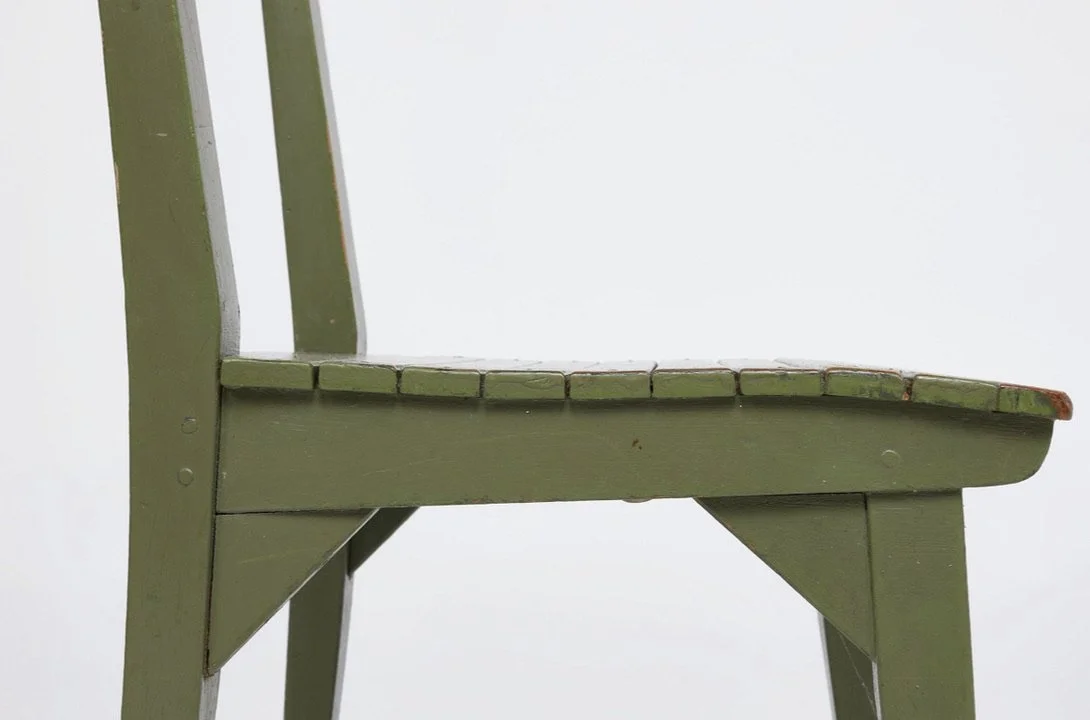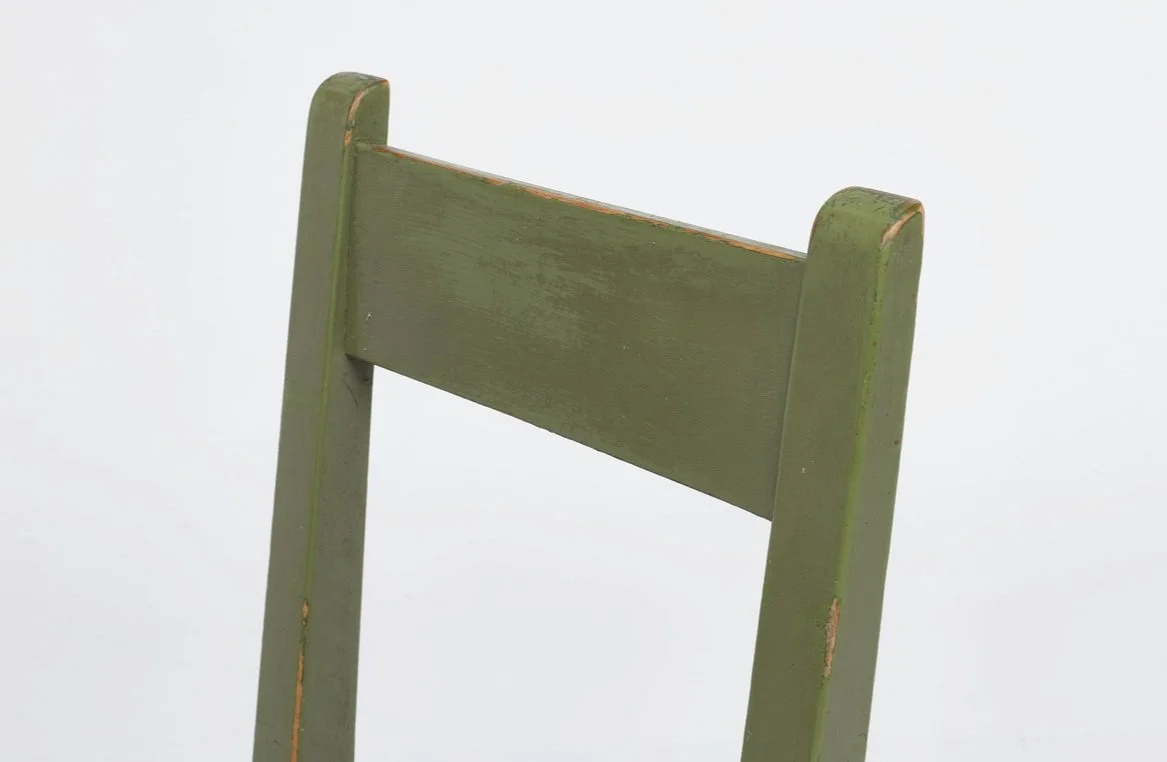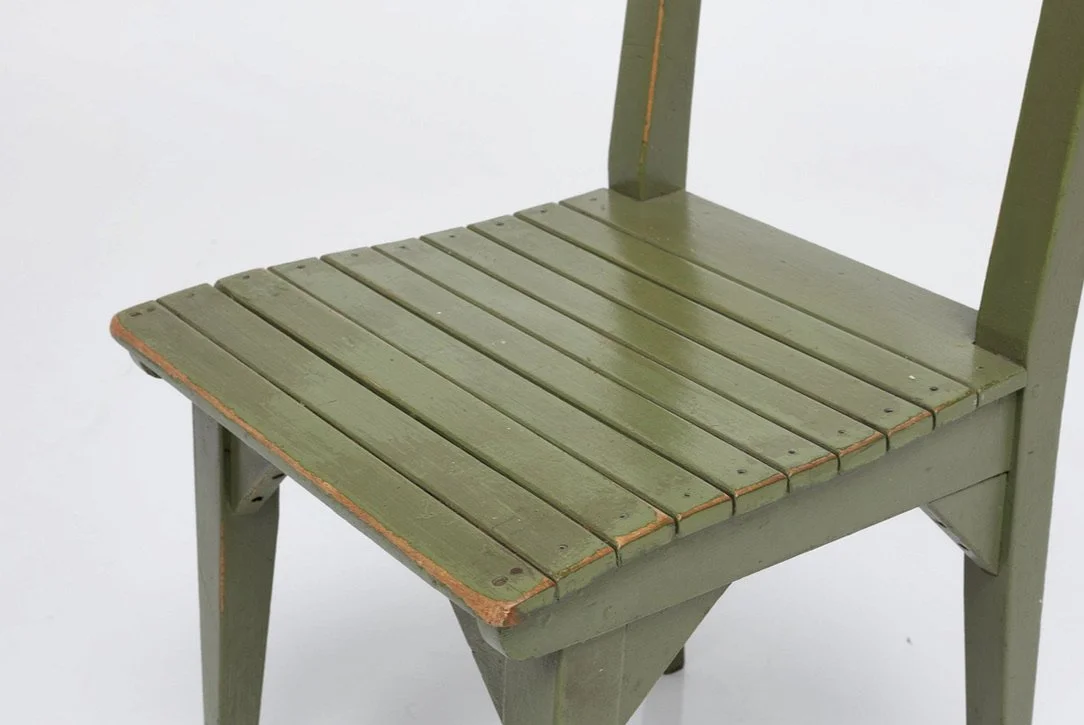Roy McMakin Painted Wood Postmodern Dining Chair Set of 6, Green, 1982, USA.
Roy McMakin Painted Wood Postmodern Dining Chair Set of 6, Green, 1982, USA.
Roy McMakin, Custom Painted Postmodern Wood Dining Chair Set, 1982. Custom commission produced by Domestic Furniture, California. Each: 35" H x 17" W x 18.5" D. Seat height: 17"
Roy McMakin is an artist whose predominantly sculptural practice includes architecture and furniture through which he demonstrates a deep engagement with the artistic potential of domestic objects and environments. He was born in 1956 in Lander, Wyoming. He studied conceptual art making under artists Allan Kaprow and Manny Farber at the University of California, San Diego, where he received both his BA and MFA. McMakin resists the conventional forms of art making through the push and pull of form and function. He seeks to bring art into the everyday as opposed to putting it on a pedestal with work that is both accessible and functional. The artist reworks objects of American domesticity, adjusting size and material to change how they are traditionally understood.
Much of the artist’s work crosses a threshold between utility and contemplation, meaning and anonymity. McMakin writes, “I have always seen functionality as a tool I use to both understand and point out my fascination and relationship to objects, and to language. Call something a table, and you put your keys on it, and something happens. It’s profoundly transformative.”
The sculptures, which are always meticulously produced, explore at what point an object can no longer be considered “useful.” As Michael Darling writes in his introduction to the catalogue accompanying McMakin’s 2003 exhibition at the Museum of Contemporary Art, Los Angeles, “If it’s built like a table and looks like a table but doesn’t exactly work like a table, can it still be a table?”
In the text for Roy McMakin: A Door Meant as Adornment, Michael Darling writes;
"Poetic interconnections with the words “adore,” “adornment,” “ornament,” and “store” make them ripe for McMakin’s gamesmanship and allow him to conflate disparate concepts and uncover surprising connections. For McMakin, furniture and domestic architecture have long offered a framework within which to enact these contextual corruptions, bringing poetic play home to where it naturally and comfortably encounters the body on a daily basis.”
“The functional use of an art object is so interesting,” says Roy McMakin. “I figured out long ago that if, as an artist, you allow folks to use your works it changes everything. I think this is a deeply profound notion, and also kinda silly.” Much of McMakin’s work is premised on the re-imagination of the way in which functional objects are sited and situated, displaying a table on the wall or pillows on low pedestals. He experiments with the Duchampian readymade, transforming pre-existing cultural products into artworks by altering their context, presentation, or meaning. In his found and fabricated furniture pieces, McMakin also plays with the aesthetic conventions of sculpture, echoing, in the Bauhaus-like simplicity of his chairs, tables, and stools, minimalist painters and sculptors, such as Donald Judd and Anthony Caro.
Founded in 1987, Domestic Furniture produced an initial small-scale production line as the commercial expression of Roy McMakin’s artistic endeavors, sold at its showroom in Los Angeles. Since then, the majority of furniture produced has been unique commissioned pieces.
McMakin’s work is featured in the collections of major museums around the country, such as: the Hammer Museum of Art, University of California, Los Angeles; the Henry Art Gallery, Seattle; the Los Angeles County Museum of Art; the Museum of Contemporary Art, Los Angeles; the Museum of Contemporary Art, San Diego; the Museum of Modern Art; the San Francisco Museum of Modern Art; and the Weatherspoon Art Museum, University of North Carolina, Greensboro.
Provenance: Commissioned for Quality Cafe, Los Angeles, CA
The Quality Cafe was a diner located at 1236 West 7th Street in Los Angeles, California. The restaurant ceased to function as a diner in late 2006 but is a part of Hollywood history, having appeared as a location in numerous of Hollywood films and tv shows, including What's Love Got to Do with It (1993), Se7en (1995), B*A*P*S (1997), Gone in 60 Seconds (2000), Coyote Ugly (2000), Training Day (2001), Ghost World (2001), Catch Me If You Can (2002), The Rules of Attraction (2002), Million Dollar Baby (2004), You Got Served (2004), Mr & Mrs Smith (2005), Mad Men (2007), 500 Days of Summer (2009), among many others.


